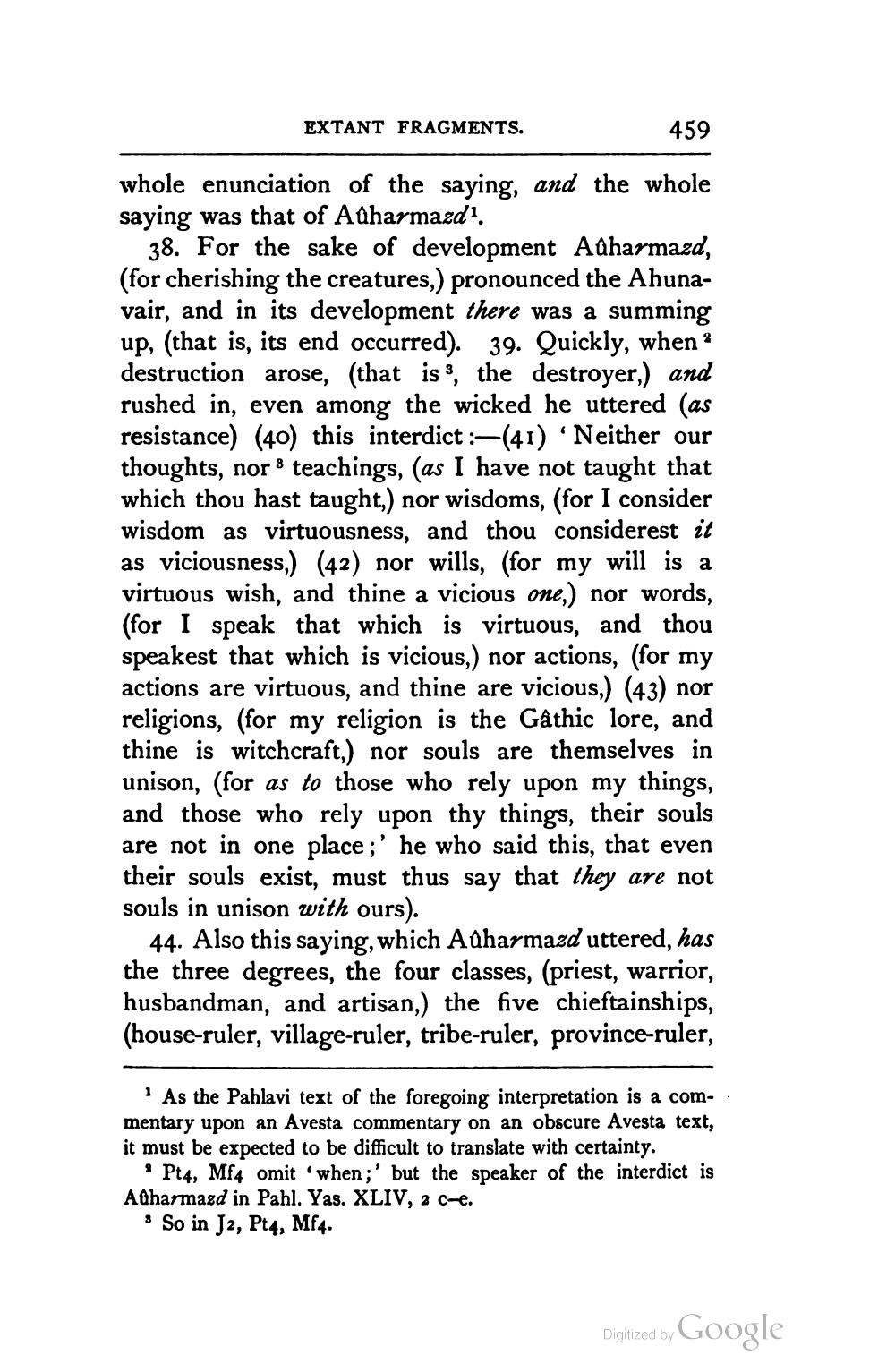________________
EXTANT FRAGMENTS.
459
whole enunciation of the saying, and the whole saying was that of Atharmazd1.
(
3
38. For the sake of development Aûharmazd, (for cherishing the creatures,) pronounced the Ahunavair, and in its development there was a summing up, (that is, its end occurred). 39. Quickly, when destruction arose, (that is, the destroyer,) and rushed in, even among the wicked he uttered (as resistance) (40) this interdict:-(41) Neither our thoughts, nor teachings, (as I have not taught that which thou hast taught,) nor wisdoms, (for I consider wisdom as virtuousness, and thou considerest it as viciousness,) (42) nor wills, (for my will is a virtuous wish, and thine a vicious one,) nor words, (for I speak that which is virtuous, and thou speakest that which is vicious,) nor actions, (for my actions are virtuous, and thine are vicious,) (43) nor religions, (for my religion is the Gâthic lore, and thine is witchcraft,) nor souls are themselves in unison, (for as to those who rely upon my things, and those who rely upon thy things, their souls are not in one place;' he who said this, that even their souls exist, must thus say that they are not souls in unison with ours).
44. Also this saying, which Aûharmazd uttered, has the three degrees, the four classes, (priest, warrior, husbandman, and artisan,) the five chieftainships, (house-ruler, village-ruler, tribe-ruler, province-ruler,
As the Pahlavi text of the foregoing interpretation is a commentary upon an Avesta commentary on an obscure Avesta text, it must be expected to be difficult to translate with certainty.
Pt4, Mf4 omit 'when;' but the speaker of the interdict is Aûharmagd in Pahl. Yas. XLIV, 2 c-e.
So in J2, Pt4, Mf4.
Digitized by
Google




